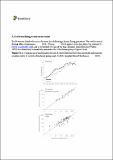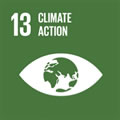Por favor, use este identificador para citar o enlazar a este item:
http://hdl.handle.net/10261/221916COMPARTIR / EXPORTAR:
 SHARE SHARE
 CORE
BASE CORE
BASE
|
|
| Visualizar otros formatos: MARC | Dublin Core | RDF | ORE | MODS | METS | DIDL | DATACITE | |

| Campo DC | Valor | Lengua/Idioma |
|---|---|---|
| dc.contributor.author | Coll, Marta | es_ES |
| dc.contributor.author | Steenbeek, Jeroen | es_ES |
| dc.contributor.author | Pennino, Maria Grazia | es_ES |
| dc.contributor.author | Buszowski, Joe | es_ES |
| dc.contributor.author | Kaschner, Kristin | es_ES |
| dc.contributor.author | Lotze, Heike K. | es_ES |
| dc.contributor.author | Rousseau, Yannick | es_ES |
| dc.contributor.author | Tittensor, Derek P. | es_ES |
| dc.contributor.author | Walters, Carl J. | es_ES |
| dc.contributor.author | Watson, Reg | es_ES |
| dc.contributor.author | Christensen, Villy | es_ES |
| dc.date.accessioned | 2020-10-28T07:59:31Z | - |
| dc.date.available | 2020-10-28T07:59:31Z | - |
| dc.date.issued | 2020-10 | - |
| dc.identifier.citation | Frontiers in Marine Science 7: 567877 (2020) | es_ES |
| dc.identifier.other | CEX2019-000928-S | - |
| dc.identifier.uri | http://hdl.handle.net/10261/221916 | - |
| dc.description | Managing for the Future: Understanding the Relative Roles of Climate and Fishing on Structure and Dynamics of Marine Ecosystems.-- 23 pages, 11 figures, 4 tables, supplementary material https://www.frontiersin.org/articles/10.3389/fmars.2020.567877/full#supplementary-material.-- All data inputs to EcoOcean v2 are either freely available as online databases or available under request from data providers. Results from the 13 runs of EcoOcean v2 presented in this study are available upon request to the lead author. The source code of EcoOcean is available under request to the lead author within a collaborative framework | es_ES |
| dc.description.abstract | Considerable effort is being deployed to predict the impacts of climate change and anthropogenic activities on the ocean's biophysical environment, biodiversity, and natural resources to better understand how marine ecosystems and provided services to humans are likely to change and explore alternative pathways and options. We present an updated version of EcoOcean (v2), a spatial-temporal ecosystem modeling complex of the global ocean that spans food-web dynamics from primary producers to top predators. Advancements include an enhanced ability to reproduce spatial-temporal ecosystem dynamics by linking species productivity, distributions, and trophic interactions to the impacts of climate change and worldwide fisheries. The updated modeling platform is used to simulate past and future scenarios of change, where we quantify the impacts of alternative configurations of the ecological model, responses to climate-change scenarios, and the additional impacts of fishing. Climate-change scenarios are obtained from two Earth-System Models (ESMs, GFDL-ESM2M, and IPSL-CMA5-LR) and two contrasting emission pathways (RCPs 2.6 and 8.5) for historical (1950–2005) and future (2006–2100) periods. Standardized ecological indicators and biomasses of selected species groups are used to compare simulations. Results show how future ecological trajectories are sensitive to alternative configurations of EcoOcean, and yield moderate differences when looking at ecological indicators and larger differences for biomasses of species groups. Ecological trajectories are also sensitive to environmental drivers from alternative ESM outputs and RCPs, and show spatial variability and more severe changes when IPSL and RCP 8.5 are used. Under a non-fishing configuration, larger organisms show decreasing trends, while smaller organisms show mixed or increasing results. Fishing intensifies the negative effects predicted by climate change, again stronger under IPSL and RCP 8.5, which results in stronger biomass declines for species already losing under climate change, or dampened positive impacts for those increasing. Several species groups that win under climate change become losers under combined impacts, while only a few (small benthopelagic fish and cephalopods) species are projected to show positive biomass changes under cumulative impacts. EcoOcean v2 can contribute to the quantification of cumulative impact assessments of multiple stressors and of plausible ocean-based solutions to prevent, mitigate and adapt to global change | es_ES |
| dc.description.sponsorship | This study received funding from the European Union's Horizon 2020 research and innovation programme under grant agreement No. 817578 (TRIATLAS project). Additional financial support was provided by the German Federal Ministry of Education and Research through the Inter-Sectorial Impact Model Intercomparison Project (ISIMIP, Grant 01LS1201A1). HL further acknowledges funding by the Natural Sciences and Engineering Research Council (NSERC) of Canada (RGPIN-2014-04491). DT acknowledges support from the Jarislowsky Foundation. VC received support from the Natural Sciences and Engineering Research Council of Canada (NSERC), Discovery Grant RGPIN-2019-04901 | es_ES |
| dc.description.sponsorship | With the funding support of the ‘Severo Ochoa Centre of Excellence’ accreditation (CEX2019-000928-S), of the Spanish Research Agency (AEI) | - |
| dc.language.iso | eng | es_ES |
| dc.publisher | Frontiers Media | es_ES |
| dc.relation | info:eu-repo/grantAgreement/EC/H2020/817578 | es_ES |
| dc.relation.isversionof | Publisher's version | es_ES |
| dc.rights | openAccess | es_ES |
| dc.subject | Marine ecosystems | es_ES |
| dc.subject | Climate change | es_ES |
| dc.subject | Fishing | es_ES |
| dc.subject | Future trajectories | es_ES |
| dc.subject | Projections | es_ES |
| dc.subject | Food web spatial-temporal model | es_ES |
| dc.subject | Model uncertainty | es_ES |
| dc.title | Advancing Global Ecological Modeling Capabilities to Simulate Future Trajectories of Change in Marine Ecosystems | es_ES |
| dc.type | artículo | es_ES |
| dc.identifier.doi | 10.3389/fmars.2020.567877 | - |
| dc.description.peerreviewed | Peer reviewed | es_ES |
| dc.relation.publisherversion | https://doi.org/10.3389/fmars.2020.567877 | es_ES |
| dc.identifier.e-issn | 2296-7745 | - |
| dc.rights.license | https://creativecommons.org/licenses/by/4.0/ | es_ES |
| dc.contributor.funder | European Commission | es_ES |
| dc.contributor.funder | Federal Ministry of Education and Research (Germany) | es_ES |
| dc.contributor.funder | Natural Sciences and Engineering Research Council of Canada | es_ES |
| dc.contributor.funder | Jarislowsky Foundation | es_ES |
| dc.contributor.funder | Agencia Estatal de Investigación (España) | - |
| dc.relation.csic | Sí | es_ES |
| oprm.item.hasRevision | no ko 0 false | * |
| dc.identifier.funder | http://dx.doi.org/10.13039/501100000780 | es_ES |
| dc.identifier.funder | http://dx.doi.org/10.13039/501100000038 | es_ES |
| dc.identifier.funder | http://dx.doi.org/10.13039/501100002347 | es_ES |
| dc.identifier.funder | http://dx.doi.org/10.13039/501100011033 | es_ES |
| dc.subject.uri | http://metadata.un.org/sdg/13 | es_ES |
| dc.type.coar | http://purl.org/coar/resource_type/c_6501 | es_ES |
| dc.subject.sdg | Take urgent action to combat climate change and its impacts | es_ES |
| item.grantfulltext | open | - |
| item.cerifentitytype | Publications | - |
| item.openairecristype | http://purl.org/coar/resource_type/c_18cf | - |
| item.languageiso639-1 | en | - |
| item.fulltext | With Fulltext | - |
| item.openairetype | artículo | - |
| Aparece en las colecciones: | (ICM) Artículos (IEO) Artículos | |
Ficheros en este ítem:
| Fichero | Descripción | Tamaño | Formato | |
|---|---|---|---|---|
| Coll_et_al_2020.pdf | 5,6 MB | Adobe PDF |  Visualizar/Abrir | |
| Coll_et_al_2020_suppl.pdf | 1,46 MB | Adobe PDF |  Visualizar/Abrir |
CORE Recommender
SCOPUSTM
Citations
33
checked on 30-mar-2024
WEB OF SCIENCETM
Citations
28
checked on 25-feb-2024
Page view(s)
187
checked on 15-abr-2024
Download(s)
197
checked on 15-abr-2024
Google ScholarTM
Check
Altmetric
Altmetric
Este item está licenciado bajo una Licencia Creative Commons



